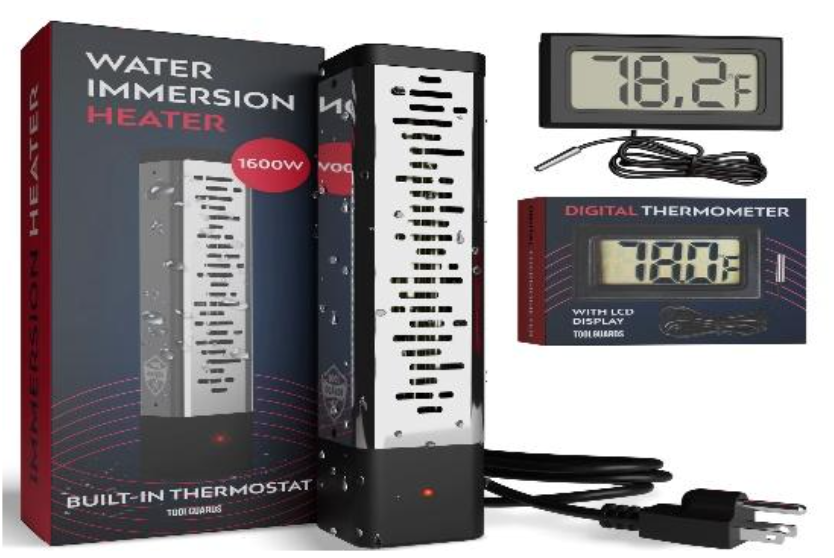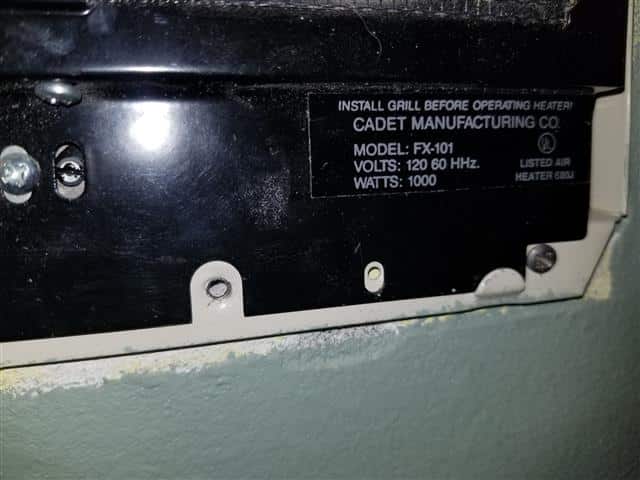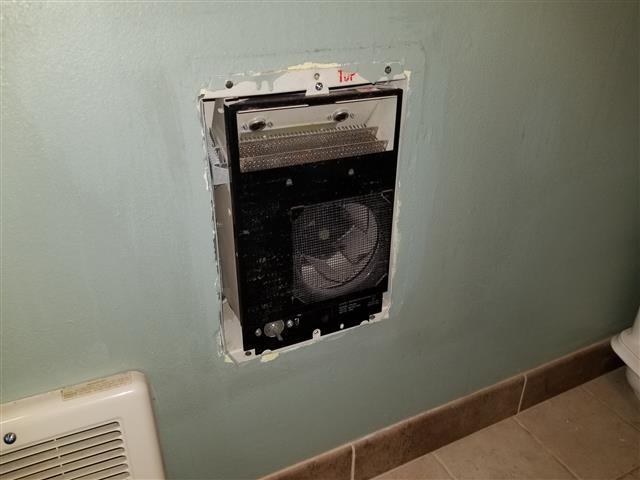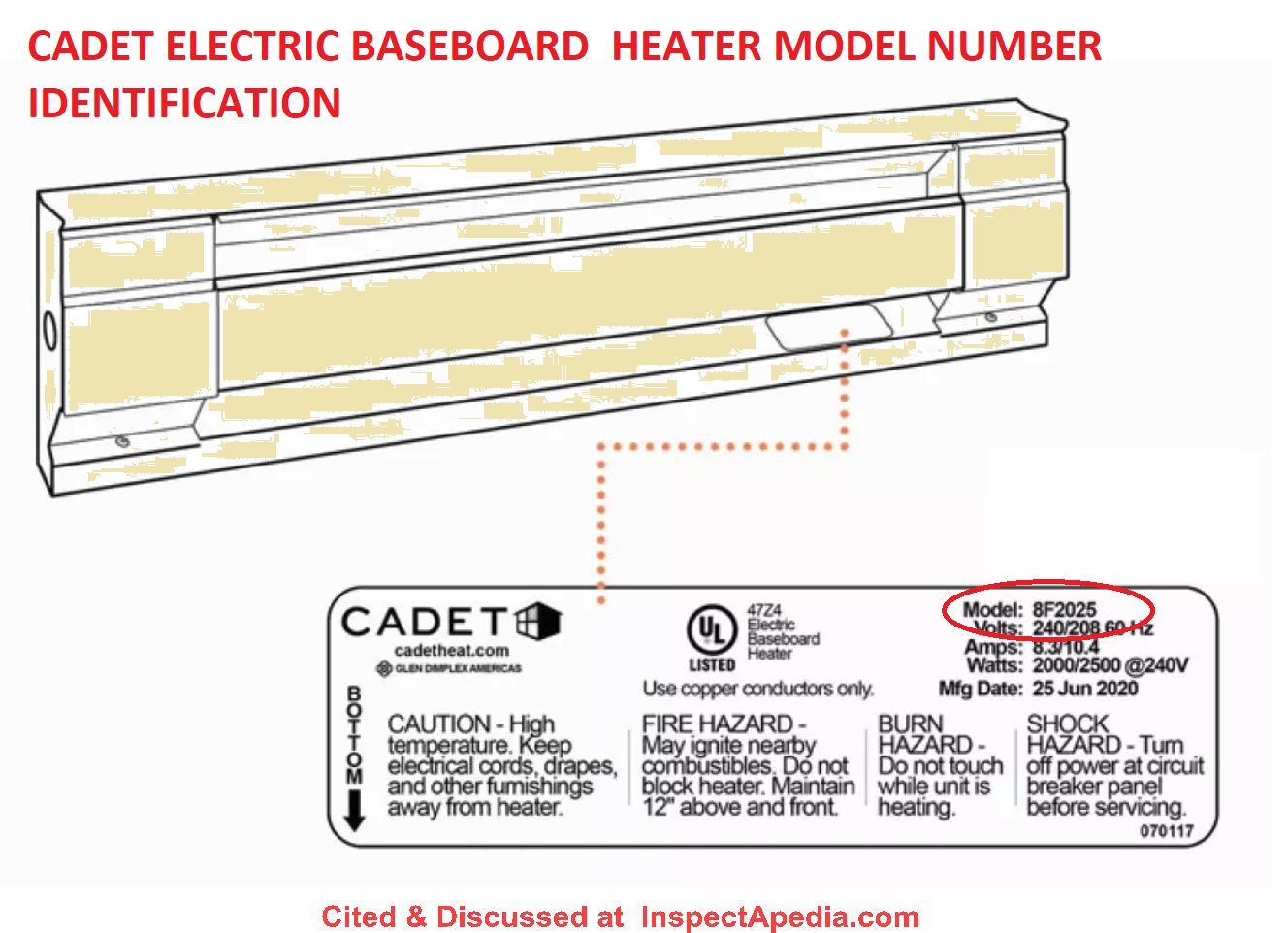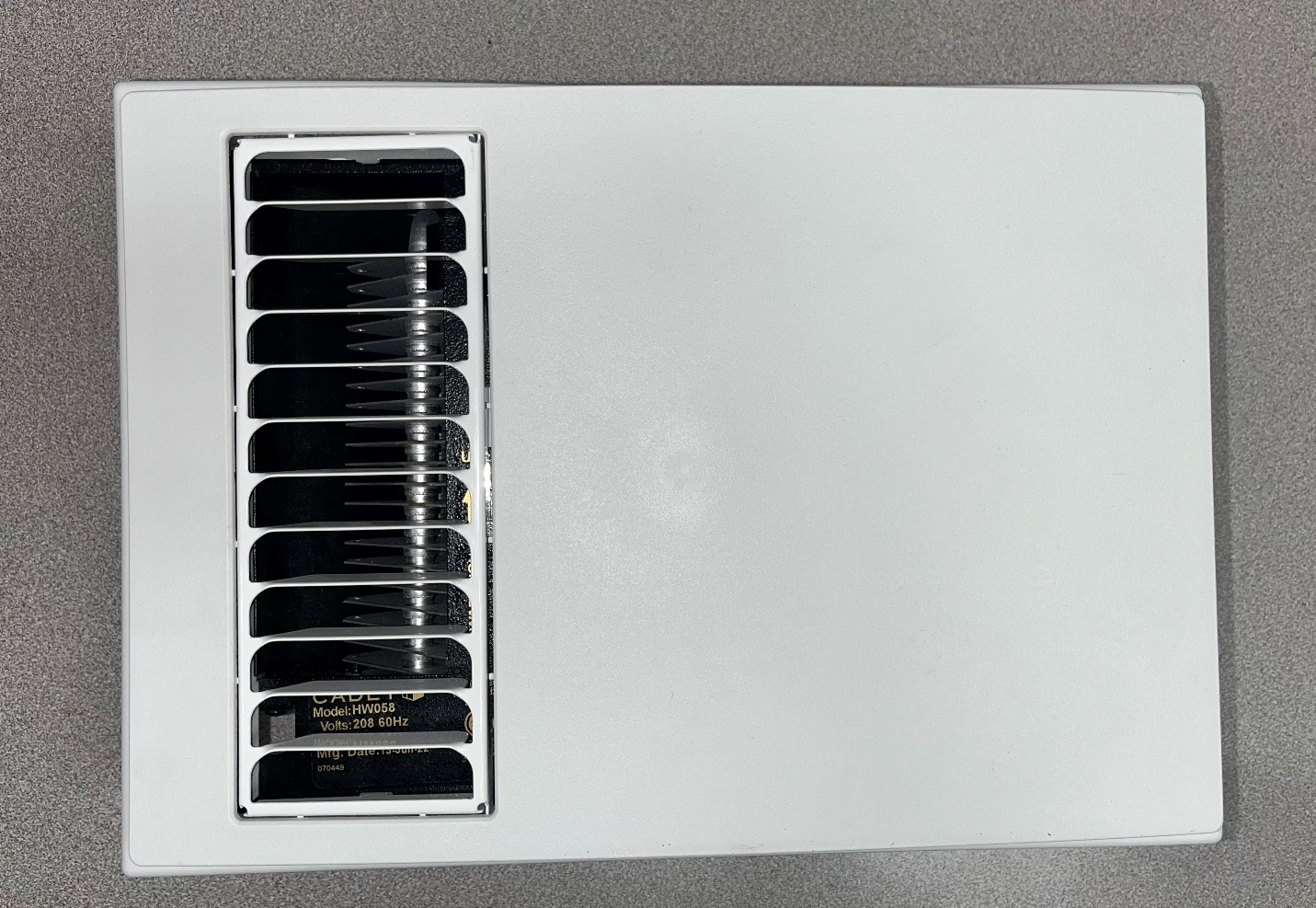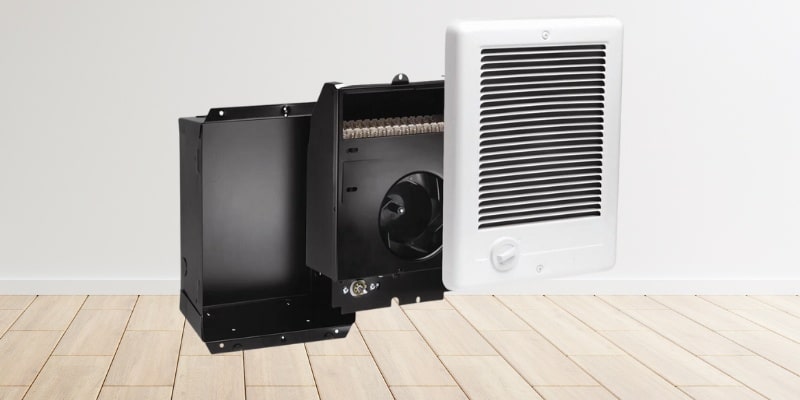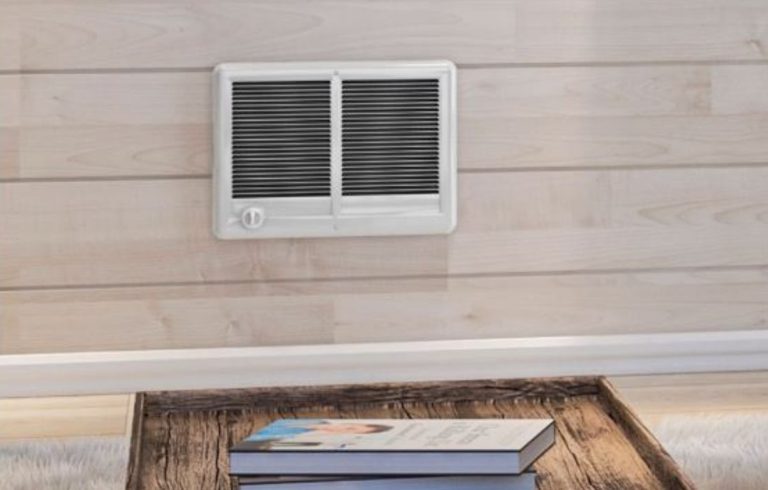Cadet Wall Heaters Recall
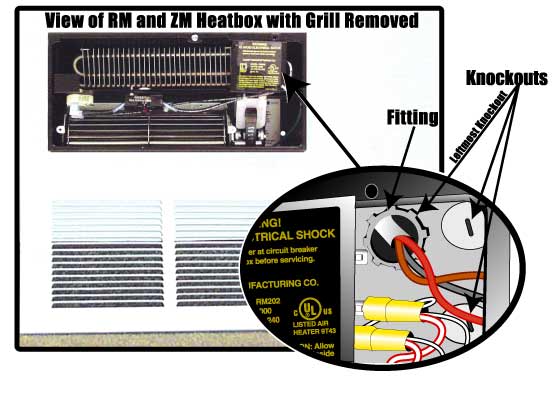
Cadet Manufacturing, a well-known name in the electric heating industry, issued a recall impacting certain models of their wall heaters. This article provides a comprehensive overview of the Cadet wall heater recall, detailing which models are affected, the reason for the recall, potential hazards, and steps homeowners, technicians, and facility managers should take. We aim to equip you with the necessary information to ensure safety and compliance.
Understanding the Cadet Wall Heater Recall
Recalls are issued when a product is found to have a safety defect that could pose a risk of injury or property damage. In the case of the Cadet wall heater recall, the issue centered around a potential fire hazard stemming from a faulty connection within the heater.
Which Cadet Wall Heaters are Affected?
It's crucial to identify if your Cadet wall heater is part of the recall. The recall primarily involves certain models manufactured between specific dates. Generally, this information can be found on a label located on the heater itself, often on the back or inside the unit after removing the front grill. Always disconnect power to the heater before attempting to inspect it.
While specific model numbers and manufacturing dates may vary depending on the particular recall notice (always refer to the official Cadet website or the Consumer Product Safety Commission (CPSC) for the most up-to-date details), common affected series often include:
- Cadet Com-Pak Bath Heaters: Compact units often installed in bathrooms due to their size and heating capacity.
- Cadet Com-Pak Heaters: General-purpose wall heaters for various rooms.
- Cadet Energy Plus Heaters: Models marketed for their energy efficiency.
Do not rely solely on memory. Locate the model number and manufacturing date on your heater and cross-reference it with the official recall information. The official Cadet website usually provides a search tool where you can enter this information to determine if your heater is affected.
The Reason Behind the Recall: A Fire Hazard
The Cadet wall heater recall was initiated due to a potential fire hazard. Specifically, a faulty electrical connection within the heater can overheat, potentially leading to melting, smoking, and in some cases, fire. This overheating is generally caused by a loose or improperly crimped connection between the heating element and the wiring within the unit.
Imagine a wire nut that isn't tightened properly. Over time, the resistance at that connection point increases, generating heat. This is analogous to what happens in the faulty Cadet heaters, but on a smaller, more concealed scale. This localized heating can then ignite surrounding materials inside the heater, leading to a fire.
Potential Hazards and Risks
The potential hazards associated with the recalled Cadet wall heaters are significant:
- Fire: The most serious risk is a fire originating within the heater. This can spread to surrounding walls, floors, and potentially the entire building.
- Smoke Inhalation: Overheating and burning components can produce smoke, posing a risk of smoke inhalation and respiratory problems.
- Property Damage: Even if a fire is contained, the overheating can cause significant damage to the heater itself and the surrounding wall.
- Electric Shock: While less common, a compromised electrical connection can also pose a risk of electric shock if the heater is touched while energized.
Because of these dangers, it is vital that any homeowner, HVAC technician, or facility manager take the recall seriously and take appropriate action immediately.
Actionable Steps for Homeowners, Technicians, and Facility Managers
If you believe you have a recalled Cadet wall heater, follow these steps:
- Stop Using the Heater Immediately: The most important step is to immediately stop using the heater. Disconnect the power to the heater at the circuit breaker. This will prevent any further risk of overheating and fire.
- Identify the Model and Manufacturing Date: Locate the model number and manufacturing date on the heater. Compare this information with the official recall information on the Cadet website or the CPSC website.
- Contact Cadet Manufacturing: Contact Cadet Manufacturing directly to register for the recall and arrange for a replacement or repair. They will provide instructions on how to proceed.
- Follow Cadet's Instructions: Cadet will typically provide instructions on how to either return the defective heater or have it repaired by a qualified technician. Do not attempt to repair the heater yourself.
- Document Everything: Keep records of all communication with Cadet, including dates, names of representatives, and any reference numbers provided. Also, retain copies of any documents related to the recall.
For HVAC Technicians and Installers
HVAC technicians play a crucial role in identifying and resolving recall issues. Here are some specific considerations for technicians:
- Stay Informed: Regularly check for recall notices from manufacturers like Cadet. Subscribe to industry newsletters and publications that report on recalls.
- Inspect During Service Calls: During routine service calls or installations, be vigilant for potentially recalled models. Check the model numbers and manufacturing dates of all Cadet wall heaters you encounter.
- Educate Customers: Inform your customers about the Cadet wall heater recall and advise them on the necessary steps to take. Provide them with links to the official recall information on the Cadet website or the CPSC website.
- Follow Proper Procedures: If you are authorized to perform repairs under the recall program, strictly adhere to Cadet's instructions and use only approved replacement parts.
- Document Your Work: Keep detailed records of all recall-related work, including the model number of the heater, the date of the repair, and the parts used.
For Property Managers
Property managers are responsible for maintaining the safety of their tenants and buildings. Here's how to address the Cadet wall heater recall in a multi-unit dwelling:
- Inventory and Identification: Conduct an inventory of all Cadet wall heaters in your buildings. Identify the model numbers and manufacturing dates of each heater.
- Communicate with Tenants: Inform your tenants about the Cadet wall heater recall and provide them with clear instructions on how to identify if their heater is affected. Provide them with contact information for Cadet Manufacturing and the CPSC.
- Coordinate Inspections: Work with a qualified HVAC contractor to inspect all Cadet wall heaters in your buildings. Ensure that the contractor is familiar with the recall and can properly identify affected models.
- Track Repairs and Replacements: Maintain a detailed record of all repairs and replacements performed under the recall program. This will help you track progress and ensure that all affected heaters are addressed.
- Implement Preventative Measures: Consider replacing all Cadet wall heaters with a safer, more reliable alternative. This can provide peace of mind and reduce the risk of future recalls.
Alternative Heating Options
While Cadet wall heaters can be a convenient heating solution, particularly in smaller spaces, the recall highlights the importance of considering alternative heating options. Here are a few:
- Baseboard Heaters: Electric baseboard heaters offer a relatively inexpensive and easy-to-install heating solution. They typically have a lower risk of fire compared to wall heaters, as the heating element is enclosed within a metal casing. However, they can be less efficient than other options.
- Mini-Split Heat Pumps: Mini-split heat pumps are a ductless heating and cooling system that offers superior energy efficiency compared to electric resistance heaters. They can provide both heating and cooling and are often quieter than wall heaters. However, they are more expensive to install. A 9,000 BTU (British Thermal Units) mini split system to heat a small room usually costs $1500-$4000 installed.
- Forced Air Furnaces: If your home has existing ductwork, a forced air furnace can be an efficient and effective heating solution. Furnaces can be powered by natural gas, propane, or electricity. Gas furnaces have AFUE (Annual Fuel Utilization Efficiency) ratings, which measures efficiency in converting gas to usable heat. An AFUE of 90% and above is considered highly efficient.
- Radiant Heating: Radiant heating systems, such as in-floor heating, provide comfortable and even heat distribution. They are more expensive to install but can be very energy efficient.
When choosing a heating system, consider factors such as energy efficiency, installation cost, operating cost, and safety. Consult with a qualified HVAC contractor to determine the best option for your needs.
Conclusion
The Cadet wall heater recall is a serious matter that requires immediate attention. By following the steps outlined in this article, homeowners, HVAC technicians, and facility managers can help ensure the safety of their homes and buildings. Remember to always prioritize safety and consult with qualified professionals when dealing with electrical and heating systems. Staying informed and proactive is key to mitigating the risks associated with product recalls and maintaining a safe and comfortable living environment.
